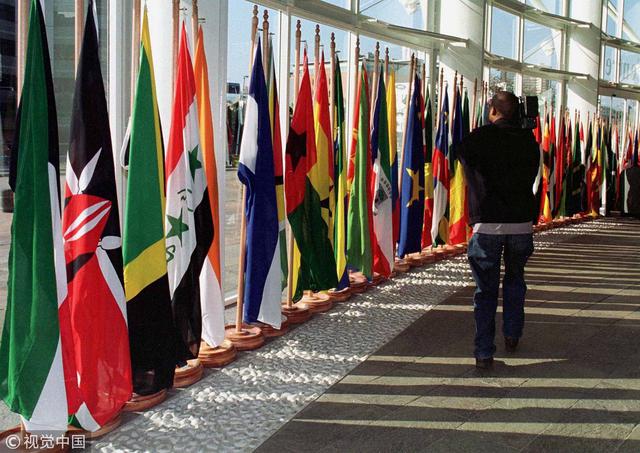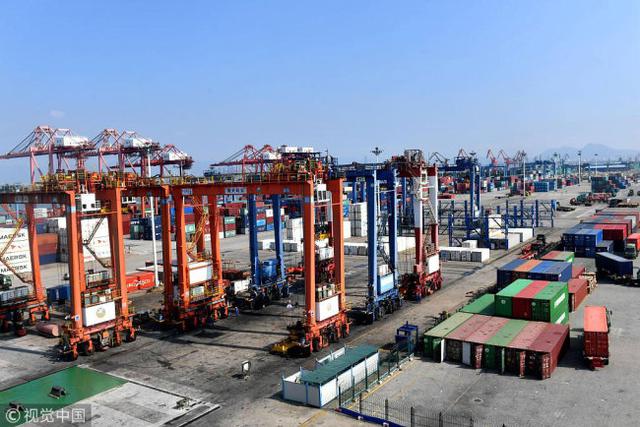
BRI answers the call of developing countries
The vast majority of developing countries have long been marginalized in the process of the international rule-making process, and are in a passive state in international economic relations. In other words, they can only act accordingly after other major powers have established a series of initiatives or institutional frameworks. Therefore, it is difficult for these countries to form their own development system and fully realize their development visions under the existing framework.
Since the end of World War II, many developing countries that have gained independence hoped to reform the old international economic order. Therefore, through a series of cooperation mechanisms such as the Non-Aligned Movement, the Group of 77, the Council for Mutual Economic Assistance, attempts have been made to end their unequal relationship with developed countries. There was even an episode of radical confrontation between North and South.

National flags of the countries represented in 12th Non-Aligned Movement Summit held in Durban, South Africa, August 29 to September 3,1998. /VCG Photo
However, the demands of these developing countries still do not wean off the thinking paradigm of "dualism" and "zero-sum game." When they are designing their own development path, they failed to recognize the key concerns of countries with vested interests. As a result, over the past decades, developed countries still dominate the international economic system. Outdated trade rules have accelerated the imbalance in the development of various countries and regions, further widening the gap between the rich and poor.
However, with the process of globalization, the development of one country or group of countries can no longer be at the expense of the future of other countries. The 1997 Asian financial crisis, the 2008 global economic crisis, and the lasting tumults caused by spillover effect have repeatedly warned us that only by shifting the existing international economic rules towards openness, inclusiveness, mutual benefit, and balanced development, can the age-old question to achieve lasting prosperity and stability in the world be answered.
Against this background, The Belt and Road Initiative (BRI) is China's answer to this age-old question. In terms of openness, China gradually extends its opening-up initiatives from areas along the preassigned land and sea routes to many more regions in the world. Whether it is bilateral cooperation or multilateral cooperation, as long as countries agree with China on the principle of consultation, contribution and shared benefits, there can be opportunities for collaboration. China never targets specific countries or attempts to challenge the existing regional cooperation mechanisms.

The view of the busy Xiamen port in southeast China's Fujian Province. /VCG Photo
In terms of inclusiveness, while China helps developing countries to meet their financial needs in infrastructure construction, it also aims to link economic elements such as human resources, raw materials, production, and markets among BRI-related countries. This can unlock the huge potential and economic vitality of these regions and thus can promote the sustainable development of local society and economy.
In terms of shared benefit, China never takes the winner-takes-all predatory development pattern. China's BRI is committed to both promoting China's own wealth growth and investing in the endogenous development momentum of the host country. China and other countries are in a symbiotic system in which one supports and promotes the other.
In terms of balanced development, China strives to connect the production markets of developing countries, which are dominated by natural resources and labor-intensive products, with those of developed countries, which are dominated by high-tech products, so as to better allocate production factors and reduce transaction costs substantially. Through a fair and open market mechanism, the economic demands of various countries will be met in a more balanced manner.
BRI was proposed by the largest developing country in the world. So it is a response to the long-time hope of developing countries to promote the reform of the international economic system. Meanwhile, China is also creating a trade network that further opens up its own market, which is consistent with the basic demands of most developed countries for economic globalization and an open world economy.
(CGTN)

